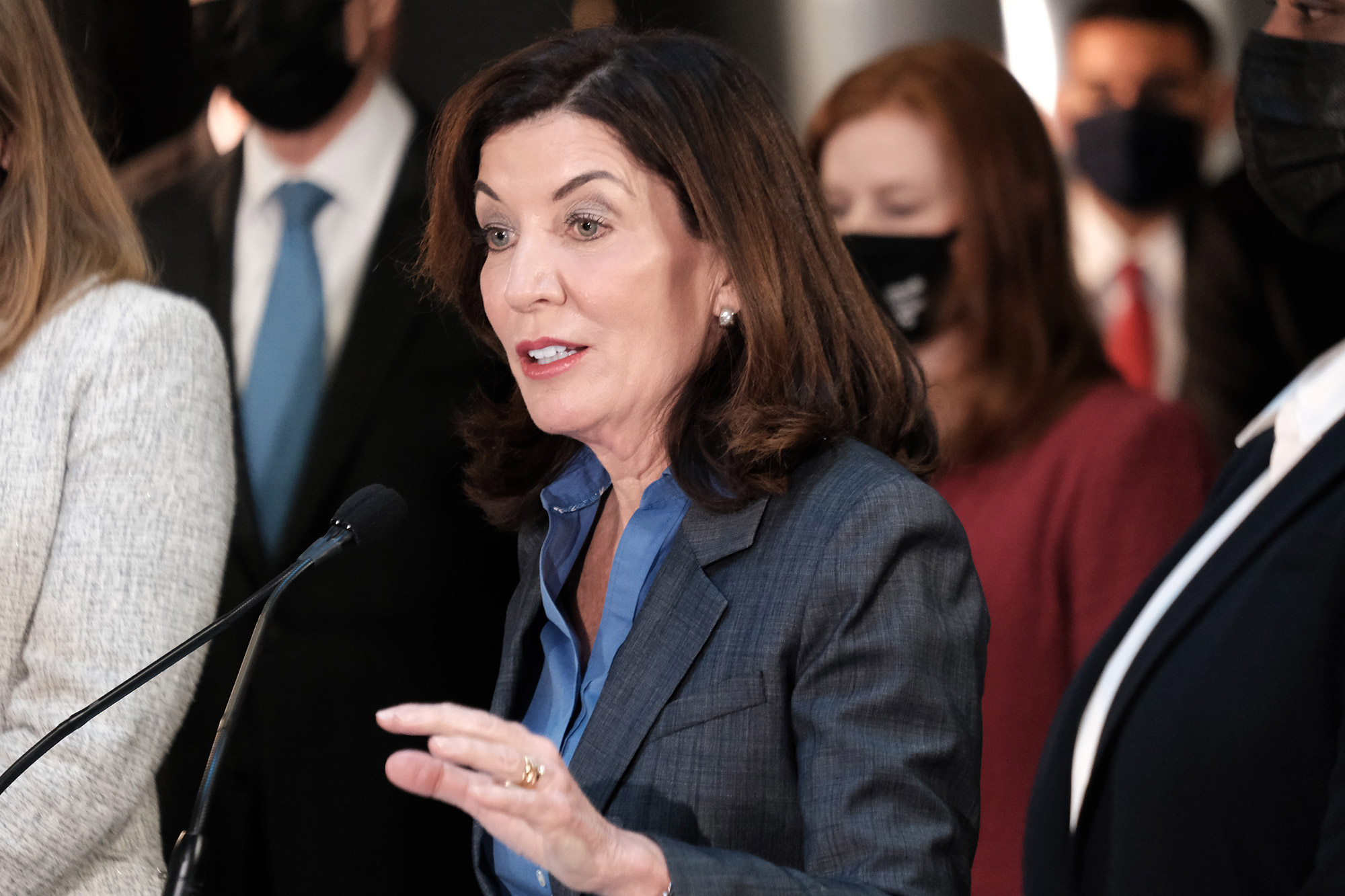New York’s new Governor, Kathy Hochul, is charting an ambitious course toward reaching the state’s emission-cutting goals. On Wednesday, Governor Hochul outlined several major climate goals in her State of the State address including accelerating offshore wind development, decarbonizing millions of homes and spurring the adoption of electric vehicles throughout the state.
The commitments are intended to help the state meet goals set by the 2019 Climate Leadership and Community Protection Act, or CLCPA, which requires the state to cut its net emissions to zero by 2050. The law also requires that New York generate 70 percent of its electricity through renewable sources by the end of this decade.
Building on the state’s investments in offshore wind energy in recent years, Hochul announced a $500 million investment to advance the nascent industry while creating more than 2,000 green jobs. The state plans to procure new wind projects capable of generating at least 2 gigawatts of electricity — enough to power 1.5 million homes. In the coming months, New York will start construction on the state’s first offshore wind project, the South Fork Wind Farm.
“With this investment, New York will lead the nation on offshore wind production, creating green jobs for New Yorkers, and powering our clean energy future,” Hochul said. “We must harness the potential of offshore wind to fuel our economy forward and meet our ambitious climate goals.”
Governor Hochul said she will propose legislation that would require all new buildings to have zero on-site emissions by 2027. If passed, New York would be the first state to enact such legislation, essentially banning the use of gas for heating buildings, which account for more than one-third of the state’s climate pollution.
To further decarbonize the state’s building stock, Hochul committed to achieving at least 1 million electrified homes and up to 1 million electrification-ready homes by 2030. The plan also envisions a funding stream “to ensure that more than 800,000 low-to-moderate income households can secure clean energy upgrades,” according to a press release from the Governor’s office. Hochul’s climate goals also include electrifying New York’s entire school bus fleet by 2035.
Renewable Heat Now, a coalition that advocates for eliminating fossil-fuel heating from buildings, praised the proposal while urging the Governor to commit substantial funding toward the program in her Executive Budget.
“Governor Hochul’s commitment to electrify millions of homes by 2030 is a critical step towards meeting the state’s climate goals,” Jessica Azulay, Executive Director of Alliance for a Green Economy, said in a statement. “Now we must fund these efforts and ensure that as part of the electrification process, we improve housing and air quality for all residents, especially the most vulnerable.”
Critics of Hochul’s climate plans question how her administration intends to fund many of the projects, noting that the goals laid out in the CLCPA have been vastly underfunded since its passage. Groups like NY Renews, which helped shepherd the CLCPA toward adoption, have called on the administration to devote $15 billion per year to “address the climate crisis at a necessary scale.”
“We cannot respond to the climate crisis with proclamations, platitudes, or pennies on the dollar,” the group said in a statement. “Without billions of dollars in this year’s budget, efforts like phasing out our reliance on fossil fuels, reducing power plant emissions, commitments to electric school buses, weatherizing and electrifying New York’s housing stock … will not be realized.”




